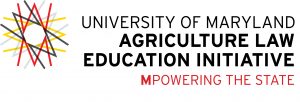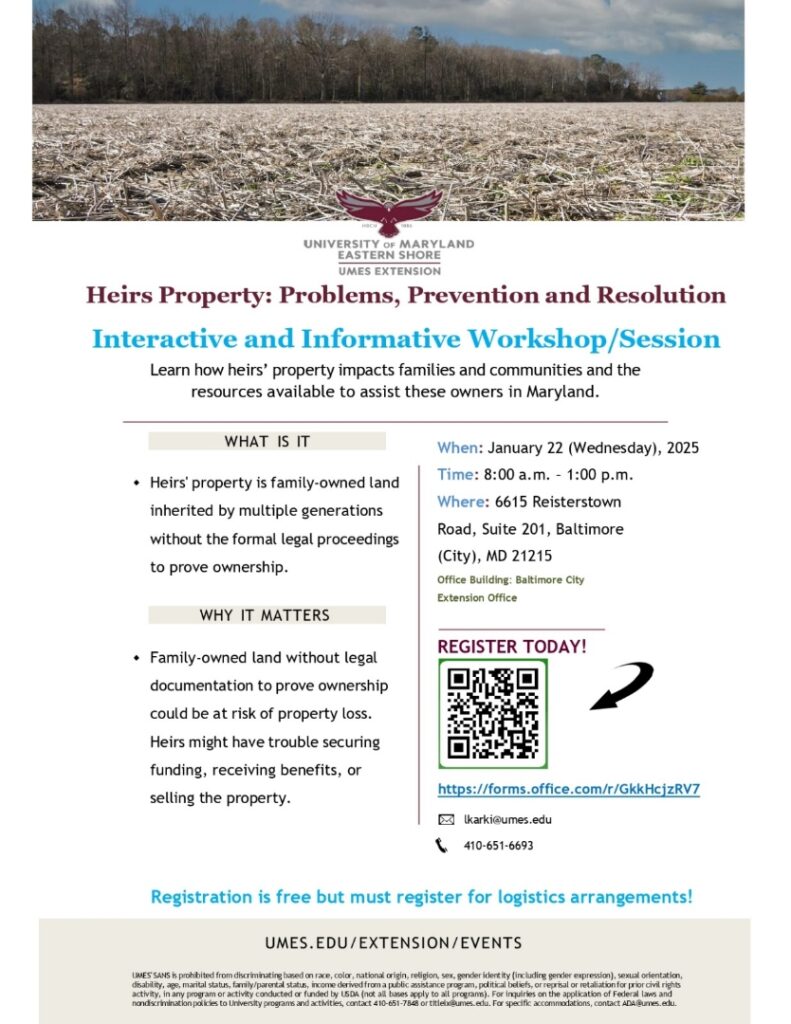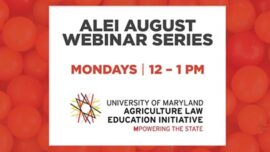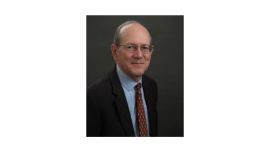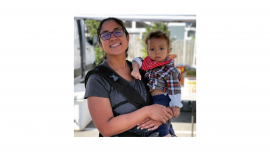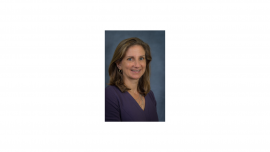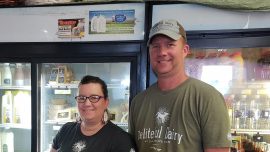April 2020 Update
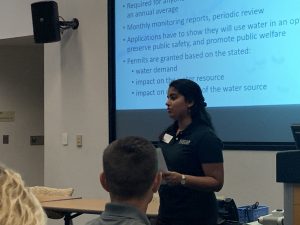
ALEI’s Margaret Todd Leads Update of University of Maryland Extension Food Safety Webpage
ALEI Specialists Awarded Grant for Educational Workshops
Factsheet on Maryland’s Solar Installation Application Process Now Available
Goeringer Awarded Project with Maryland Soybean Board
New Leasing Resource for Livestock Producers
COVID-19 Legal Resources
The agricultural community has had to quickly adapt to the legal and other impacts of the global COVID-19 pandemic. The ALEI team has been working to develop resources to help address questions and concerns we have received from you. Please continue to contact us as questions arise.
Information about contracts, labor, insurance, and other information is now available on the ALEI website at https://umaglaw.org/legal-resources/covid-19-resources/.
This page will be updated regularly as more resources are created to address this evolving situation.
New Leasing Resource for Livestock Producers
By: Mayhah Suri
ALEI Research Assistant Margaret Todd recently created the Sample Maryland Pasture Lease Agreement to address the needs of livestock producers who lease pastureland. The template is designed to address issues that producers raising all types of livestock should include in a pasture lease. According to Todd, “At one of my first events with ALEI, I heard from producers that they needed an easy-to-use and understand resource specific to Maryland farmers,” adding that farmers at other events also voiced interest in such a resource.
Show More “I decided I would add to ALEI’s leasing resources and templates by creating an informative and customizable pasture lease for local producers,” Todd continued. Several experts from UMD Extension, local producers, and attorneys reviewed and contributed to developing the sample lease. This leasing resource is a fillable template document featuring both basic and sample leasing provisions for implementing conservation practices like rotational grazing which promote healthy soils. Other examples provided in the template include how to refer to best management practices and address participation in state and Federal conservation programs, and a table tenant and landowner can use to establish expectations for fencing maintenance, property inspections, and other areas of concern. The template includes fillable space to allow customization of leasing details. It is always advisable, however, to seek the advice of an attorney when creating a contract to ensure it addresses your individual operational needs. Close
Factsheet on Maryland’s Solar Installation Application Process Now Available
By: Mayhah Suri
Solar arrays are becoming an increasingly familiar sight all over Maryland. In 2017, solar power in Maryland exceeded the combined electricity generation from both biomass and wind power for the first time. The process for installing solar arrays in Maryland, particularly for utility-scale projects which produce more than 2 Megawatts of electricity, involves applying for a Certificate of Public Convenience and Necessity (CPCN). The CPCN application process is a lengthy and complicated adjudicatory proceeding which begins with the Public Service Commission.
Show More ALEI Research Assistant Margaret Todd developed a factsheet and checklist which provide an overview of CPCN proceedings, beginning with pre-application requirements through the steps for filing an appeal from a Public Service Commission decision. Agricultural landowners often decide to install solar panels to off-set their personal and business electricity usage. Solar developers also approach agricultural landowners about leasing farmland to install utility-scale solar energy generating stations. “This publication is meant to provide an easy-to-understand overview of the application and approval process governing solar projects for people who want to ensure local interests are protected, and for those who want to do business with solar developers to maximize income and land use potentials,” Todd said. The document also discusses when a CPCN is not needed before installing solar panels, and references resources useful when contemplating smaller scale solar projects. For advice about how these issues might apply to your situation, consult an attorney. Close
ALEI Specialists Awarded Grant for Educational Workshops
Mayhah Suri, Extension Specialist, and Paul Goeringer, Extension Legal Specialist, were awarded a grant by the Maryland Grain Producers Utilization Board (MGPUB) recently to continue outreach efforts to local officials about agricultural issues.
Show More Suri and Goeringer worked in fall 2019 with an interdisciplinary team of Extension specialists, including Dr. Jon Moyle and Dr. Nicole Fiorellino, to develop and teach an innovative new workshop series for local leaders and officials working on land use and planning issues. Goeringer noticed that right-to-farm and other land use disputes were often reviewed by local officials with limited agricultural experience. The interdisciplinary team developed presentations to introduce this audience to common practices in agriculture, including water use, grain production, poultry production, and basic legal issues. After a successful series in 2019, which was also supported by MGPUB, Suri and Goeringer applied for additional funds to support a second workshop series in western Maryland. The $5,000 award will be used to develop and deliver workshops for planning, zoning, economic development, and other local officials in western Maryland to gain a basic understanding of what good agricultural practices look like. According to Suri, “Our goal is to come up with a way to reach non-agricultural audience and help them understand what modern agricultural practices look like.” Another goal of the series is to make non-agricultural audiences aware of the educational resources available through University of Maryland Extension and state agencies. The workshop series is titled, “What’s That Smell: Understanding Modern Agriculture” to encourage audience members to ask questions or bring up any concerns they may have. Workshop dates and locations will be available on the ALEI website in the coming months. Close
ALEI’s Margaret Todd Leads Update of University of Maryland Extension Food Safety Webpage
By: Margaret Todd
ALEI legal specialists partnered with Maryland Department of Agriculture (MDA) Food Quality Assurance Program to update the University of Maryland Extension Food Safety webpage. The joint effort, spearheaded by ALEI Research Assistant Margaret Todd, focused on addressing the need to make vital information regarding the Food Safety Modernization Act (FSMA) regulations more readily available for Maryland producers.
Show More According to Deanna Baldwin, manager of the MDA Food Quality Assurance Program, “Food safety regulations and buyer requirements have become more complex during recent years placing an increased burden on farmers and small businesses to understand and implement food safety practices. Previously, farms and businesses have spent hours searching websites to find the information they need. Margaret Todd’s reorganization of the Extension food safety website has created an effective one-stop tool for quickly locating accurate resources to assist with compliance.” The updated content went live in January 2020 and can be accessed under the “On The Farm (FSMA & GAPs)” tab on the University of Maryland Extension Food Safety webpage. The page now includes more detailed information on the FSMA regulations, specifically the Produce Safety Rule (PSR) requirements, Preventive Controls Rules (PCR) requirements, and Good Agricultural Practice (GAP) programs. The Produce Safety Rule page features links to training videos and other resources to help growers access a variety of educational materials. Another resource added to the PSR page is a comparison table that includes side-by-side explanations of the similarities and differences between the requirements for PSR compliance and Maryland’s GAP program. The Preventive Controls Rules page includes an overview of the rules for both Human Foods and Animal Foods. In addition to the key provisions, the page features explanations on PCR applicability, exemptions, and links to resources for producers who need to register their facilities. Other content added to the UME page is a Food Safety Contacts page. The Contacts page provides growers names and contact information for experts from several agencies and organizations who can help producers that have more questions about the laws, how to comply with the laws, how to attend an approved FSMA training, accessing resources and programs that will make compliance simpler, and more. Close
Goeringer Awarded Project with Maryland Soybean Board
By: Paul Goeringer
The Maryland Soybean Board (MSB) recently award $3,000 to Paul Goeringer, Extension Legal Specialist, to develop resources to assist Maryland producers in understanding the legal issues impacting their farms today. MSB administers soybean checkoff funds for soybean research, marketing, and education programs in the state.
Show More With this grant, Goeringer plans to develop resources to explain potential legal issues involved in modern production agriculture to Maryland growers. “This funding is based on the growing need expressed by growers in the state to understand basic legal issues impacting their operations,” said Goeringer. “These issues can cover everything from animal welfare laws, trespass laws, and right-to-farm law developments.” Goeringer hopes to develop a concise fact sheet laying out a basic understanding of these legal issues and templates and model language for Maryland growers to adopt in their operations. The tools and resources under this project will be rolled out in the Fall of 2020. and will be available on umaglaw.org and extension.umd.edu. Close
